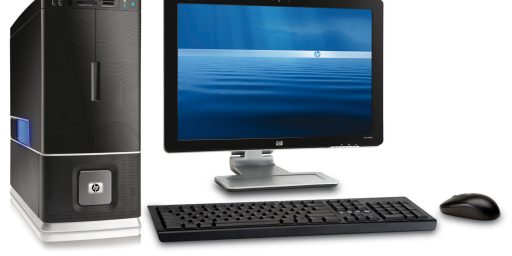Why Microsoft is So Slow
Microsoft may finally be falling victim to its own success.
Last week, in the latest setback, Microsoft conceded that Vista would not be ready for consumers until January, missing the holiday sales season, to the chagrin of personal computer makers and electronics retailers — and those computer users eager to move up from Windows XP, a five-year-old product. In those five years, Apple Computer has turned out four new versions of its Macintosh operating system, beating Microsoft to market with features that will be in Vista, like desktop search, advanced 3-D graphics and “widgets,” an array of small, single-purpose programs like news tickers, traffic reports and weather maps. So what’s wrong with Microsoft? There is, after all, no shortage of smart software engineers working at the corporate campus in Redmond, Wash. The problem, it seems, is largely that Microsoft’s past success and its bundling strategy have become a weakness.
Windows runs on 330 million personal computers worldwide. Three hundred PC manufacturers around the world install Windows on their machines; thousands of devices like printers, scanners and music players plug into Windows computers; and tens of thousands of third-party software applications run on Windows. And a crucial reason Microsoft holds more than 90 percent of the PC operating system market is that the company strains to make sure software and hardware that ran on previous versions of Windows will also work on the new one — compatibility, in computing terms.
As a result, each new version of Windows carries the baggage of its past. As Windows has grown, the technical challenge has become increasingly daunting. Several thousand engineers have labored to build and test Windows Vista, a sprawling, complex software construction project with 50 million lines of code, or more than 40 percent larger than Windows XP. “Windows is now so big and onerous because of the size of its code base, the size of its ecosystem and its insistence on compatibility with the legacy hardware and software, that it just slows everything down,” observed David B. Yoffie, a professor at the Harvard Business School. “That’s why a company like Apple has such an easier time of innovation.”
One would think they would simply jettison backwards compatibility, especially beyond a single generation. It is simply unreasonable to except to be able to run programs written for DOS 4.0–or even Windows 3.1–on an operating system developed several years later. After all, we don’t expect to be able to play LPs and 8-tracks on our iPods.
Update: Henry Farrell makes an interesting point:
Presumably Microsoft doesn’t want to break compatibility because by so doing it might undermine its enduring monopoly — if the mutual lock-in between Microsoft’s operating system and office productivity software is weakened, people might quite possibly move away from both. Apple, not being a monopoly (but having high customer loyalty) was much better placed to make the jump. While in contrast, Microsoft customers can look forward to a piece of bloatware that will be extraordinarily obese even by its previous standards. I suspect I’ll be switching to Mac meself next time I have the chance.
I have considered making that move before but only quickly. Since I have always worked for companies that used Windows-based products, home-work compatibility has trumped other factors.






When Windows 95 came out, it was a 32-bit operating system, but it had the capability to run older 16-bit programs from DOS 4.0, for example. As future versions of Windows came out, 16-bit operability was phased out for pure 32-bit computing.
We are entering the age of 64-bit computing (for the mainstream), and going through the same process of allowing 32-bit programs to run. Expect subsequent releases of Windows to not have 32-bit computing support.
Comparing Microsoft to Apple in this context is not a fair comparison, either, because Apple makes the hardware. Microsoft lets you “mix and match” your computer.
I do everything on Linux (SuSE 10.0, kernel 2.6.15), but I don’t have that typical “Slashdot hatred” of Microsoft. The bottom line is that Microsoft still leads the world in innovation in software. Vista may be 40% larger than XP, but Windows 2000(2001) had 35 million LOC and Windows XP (2002) had 40 million LOC. Obviously, as the years go on, there will be new innovation, thus there will be more code.
Maybe it’s because I’m conditioned to the aforementioned “Slashdot hatred,” but when I read “bloatware” over what will be the most advanced operating system (by far), I also think of the people that refer to Microsoft as “Micro$oft.”
I’m willing to at least give Microsoft a chance.
This is so typical, Most businesses want to become bigger, then they drown themselves with the usual internal politics that bogs them down to extinction. Just look at Delta Airlines, American, Northwest, General Motors, Ford and the list goes on and on. Dell computers is now in the first throws of extinction and it is apparent by their outsourcing of their customer service to India. ( who in the hell wants t talk about a computer problem with someone that you cannot understand)
Bigger is not better, it only defers the downfall a little longer.
But like the Government, they never learn
Brandon,
I don’t have “Slashdot hatred” of MS either (well, much), but your claims that MS leads in innovation and that Vista will be the most advanced operating system to date (“by far”) are simply wrong. Vista will be introducing features to the Windows world that debuted (by the time that Vista is released, assuming it does not slip again) on MacOS almost two years earlier. I can’t remember the last truly innovative MS product, which is to say something that wasn’t either blatantly copied from a competitor or became an MS product by acquiring the developer. Even open source projects like Firefox quite often manage to be more innovative than MS’ counterparts (IE – tabbed browsing?), despite MS’ obvious advantages in staff and funding.
I agree that Firefox is better than IE, but IE doesn’t even have anything to do with an operating system. (You can’t run Firefox as your OS.)
Vista is going to be the most advanced operating system to date. Outside of Mac Daily News, that’s the first time I’ve heard someone discount that. Apple’s OS is pretty, absolutely, but it won’t compete (and neither with Linux) with Aero Glass.
There will be great abilities to use parental controls, desktop searching (like you search through Google), and tremendous access to your media. Also, Windows XP was geared for 2002 before spyware, malware, and adware all took off, and we’ve all seen what all of that junk has done to our XP boxes. Vista will have massive amounts of security added for the world in 2007 (or whenever the thing comes out).
And Windows is taking some of the best ideas from many different products. IE 7 will incorporate a lot of Firefox’s features; Windows will take a page out of Unix with their user-level security and full encryption (which is the same place Apple “stole” it from, to use your words).
But look, Vista will require a horse of a computer to run things like Aero Glass. So what? I don’t mind having a brand new operating system require the top of the line computer components. Since this will be their flagship OS for years to come, people with slower computers can turn off the power-hungry features until they upgrade.
As for the past, Windows has set the standard for business networking with their innovations in domain-centered technologies; scores of programs can be run under the blanket of the Microsoft OS, with hardware you have chosen yourself (unlike Apple); and from games to programming langauge programs (Visual C, Visual Basic, etc.) to HTML editors to operating systems, et al., it’s obvious that Microsoft is an innovative company.
But like I said in my first post, I prefer Linux. Now that Apple has an Intel-based Mac, I’m more interested in Apple, too. I don’t think Microsoft is perfect; if I did, I probably wouldn’t be using Linux and praising Apple. I’m not even a Microsoft apologist — there are plenty of things I can find to complain about.
Vista will be nice, though, and even if most of the innovations are incoporated from the best of Firefox, Apple’s OS, Linux, etc., then Vista will still be the most advanced — for a little while — regardless of who came up with the idea.